2010 Winter Olympics
| XXI Olympic Winter Games | |
The 2010 Winter Olympics logo was unveiled on |
|
| Host city | Vancouver, BC, Canada |
|---|---|
| Motto | With glowing hearts/ Des plus brillants exploits |
| Nations participating | 80+ (projected)[1] |
| Athletes participating | 5,500 (projected)[1] |
| Events | 86 in 7 sports |
| Opening ceremony | February 12 |
| Closing ceremony | February 28 |
| Stadium | BC Place Stadium |
The 2010 Winter Olympics, officially known as the XXI Olympic Winter Games or the 21st Winter Olympics, will be held from February 12 to February 28, 2010 in Vancouver, British Columbia, Canada with some events held in Whistler, British Columbia. Both the Olympic and Paralympic Games are being organized by the Vancouver Organizing Committee (VANOC).
The 2010 Winter Olympics will be the third Olympics hosted by Canada, and the first by the province of British Columbia. Previously, Canada was home to the 1976 Summer Olympics in Montreal and the 1988 Winter Olympics in Calgary. These will also be the first games to be held in an NHL market since the league allowed its players to participate starting in 1998.
Following Olympic tradition, former Vancouver mayor Sam Sullivan received the Olympic flag during the closing ceremony of the 2006 Winter Olympics in Turin, Italy, which was also attended by Governor General Michaëlle Jean and Premier of British Columbia, the host province, Gordon Campbell, himself a Vancouver native. The flag was raised on February 28, 2006, in a special flag raising ceremony, and will be on display at Vancouver's city hall until the Olympic opening ceremony. At the same time, Prime Minister Stephen Harper said in a statement that the Olympic flame had begun its journey to Vancouver.[2]
The Call for Volunteers program was launched on February 12, 2008 to find 25,000 volunteers.[3]
Tickets for the event were first available for purchase on October 3, 2008.[4]
Contents |
Bidding
The Canadian Olympic Association chose Vancouver as the Canadian candidate city over Calgary, which sought to re-host the games and Quebec City, which had lost the 2002 Olympic bid in 1995. On the first round of voting on November 21, 1998, Vancouver-Whistler had 26 votes, Quebec City with 25 and Calgary 21. On December 3, 1998, the second and final round of voting occurred between the two leading contenders, which saw Vancouver win with 40 votes compared to Quebec City's 32. The win allowed Vancouver to prepare its bid and begin lobbying efforts internationally.
After the bid bribing scandal that took place with the 2002 Winter Olympics at Salt Lake City (which saw Quebec City asking for compensation (CDN$8 million) for their failed 2002 bid[5]), 1999 saw many of the rules around the bidding process change. The IOC created the Evaluation Commission which was appointed on October 24, 2002. Prior to the bidding for the 2008 Summer Olympics, often host cities would fly members of the IOC to their city where they toured the city and were provided with gifts from the city. The lack of oversight and transparency often led to allegations of money for votes. Afterward, changes brought forth by the IOC bidding rules were tightened, and more focused on technical aspects of candidate cities. The team analysed the candidate city features and provided its input back to the IOC. The bid books from the three candidate cities were submitted in January 2003 and inspections occurred before May 2003, when the final report was submitted.
Vancouver's residents were asked in a referendum whether they accepted the responsibilities of the host city should it win its bid. Sixty-four percent of residents accepted the proposal. The referendum was held only in Vancouver, though the infrastructure tab was to be picked up by the province as a whole.
Furthermore, this victory was helped by a media campaign which saw those who supported the Olympic bid outspend those who were against the bid by 88:1. Regardless, it was the first time such a referendum was successful. In neighbouring Washington state to the south, both the state legislature and Governor Gary Locke passed a resolution in support of Vancouver's bid, and sent it to the IOC.[6]
Vancouver won the bidding process to host the Olympics by a vote of the International Olympic Committee on July 2, 2003 at the 115th IOC Session held in Prague, Czech Republic. The result was announced by IOC President Jacques Rogge.[7][8] It also happened a day after Canada celebrated its national holiday, Canada Day.
Vancouver faced two other finalists shortlisted that same February: PyeongChang, South Korea and Salzburg, Austria. Pyeongchang had the most votes of the three cities in the first round of voting, in which Salzburg was eliminated. In the run-off, all but two of the members who had voted for Salzburg voted for Vancouver.
Two years earlier, Canada had put in a bid for the 2008 Summer Olympics in Toronto, but lost out to Beijing. British Columbia had refused to support Toronto's bid that,[9] had it succeeded, would have ended Vancouver's chances of hosting the 2010 games as the IOC preferred to rotate the Games among continents.
| 2010 Winter Olympics bidding results | |||||
|---|---|---|---|---|---|
| City | NOC Name | Round 1 | Round 2 | ||
| Vancouver, British Columbia | 40 | 56 | |||
| PyeongChang | 51 | 53 | |||
| Salzburg | 16 | - | |||
Construction
|
| IOC · COC · VANOC |

The initial problem Vancouver faced in winning the bid for the 2010 Winter Olympics was fundraising for construction of venues. The Bid Committee, and subsequently VANOC, arranged for commitments of investment on a 50/50 basis by the federal and provincial governments, primarily for amounts to cover venue construction costs. It later began to achieve sponsorships and donations from private corporations and institutions. Such commitments were made enthusiastically as a chance to build on the world prestige Vancouver already gained as host of the 1986 World's Fair and to improve on the technological advances made during that event, like the expansion of the SkyTrain transit system.
The expansion was a pledge of the BC government, and not the responsibility of VANOC. Construction of the rapid transit link between Richmond, the adjacent international airport and downtown Vancouver is now underway and is expected to be completed by late 2009. The BC government also indicated it would pay for a C$600 million upgrade of the Sea-to-Sky Highway to accommodate increased traffic between Vancouver and Whistler, although this highway upgrade has been overdue for more than a decade and will still not meet the basic needs of the corridor.
The three main venues – constructed at a cost of $580 million, about 23 percent above the 2003 bid forecasts – have already had their work largely completed. The $40-million Hillcrest/Nat Bailey stadium park, which will host curling, will be finished later this year.
The Vancouver Olympic Committee (VANOC) spent $16.6 million on upgrading facilities at Cypress, which will host the freestyle (aerials, moguls, ski cross) and snowboarding events. The athletes' villages in Whistler and Vancouver are still under construction, as are the main media centre in Coal Harbour and its Whistler counterpart.
As of 2004, the operational cost of the 2010 Winter Olympics is estimated to be in the range of C$1.4 billion. In 2006, VANOC CEO John Furlong estimated it would be about C$1.7 billion, all raised from non-government sources, primarily through sponsorships and the auction of national broadcasting rights. C$580 million is the taxpayer-supported budget to construct or renovate venues throughout Vancouver and Whistler, C$200 million is expected to be spent for security, of which the Royal Canadian Mounted Police (RCMP) is the lead agency.
Logo and mascots
The 2010 Winter Olympics logo was unveiled on April 23, 2005 and is named Ilanaaq the Inunnguaq. Ilanaaq is the Inuktitut word for friend. The logo is based on the Inukshuk built for the Northwest Territories Pavilion at Expo 86 and donated to the city of Vancouver after the event. It is now used as a landmark on English Bay beach.
The mascots for the 2010 Winter Olympic and Paralympic Games were introduced on November 27, 2007.[10] After the unveiling, many people were displeased with the look of the new mascots because they represented a minority population of Vancouver.[11] Inspired by traditional First Nations creatures, the mascots include:
- Miga - A mythical sea bear, part orca and part kermode bear.
- Quatchi - A sasquatch.
- Sumi - An animal guardian spirit who wears the hat of the orca whale, flies with the wings of the mighty Thunderbird and runs on the strong furry legs of the black bear.
- Mukmuk - A Vancouver Island marmot, Mukmuk is not an official mascot but acts as their sidekick.
Miga and Quatchi are mascots for the Olympic Games, while Sumi is the mascot for the Paralympic Games.
Sports
Eighty-six winter sports events have been announced as part of the 2010 Winter Olympics. The eight sports categorized as ice sports are: bobsled, luge, skeleton, ice hockey, figure skating, speed skating, short track speed skating, and curling. The three sports categorized as alpine, skiing and snowboarding events are: alpine, freestyle and snowboarding. The four sports categorized as Nordic events are: biathlon, cross country skiing, ski jumping, and nordic combined.
|
|
|
|
The opening and closing ceremonies and the events categorized as ice sports (excluding bobsleigh, luge and skeleton) will be held in Vancouver and Richmond. The sports categorized as "Nordic events" will be held in the Callaghan Valley located just to the west of Whistler. All alpine skiing events will be held on Whistler Mountain (Creekside) and sliding events (bobsleigh, luge and skeleton) will be held on Blackcomb Mountain. Cypress Mountain (located in Cypress Provincial Park in West Vancouver) will host the 2010 freestyle skiing (aerials, moguls, and ski cross), and all 2010 snowboard events (half-pipe, parallel giant slalom, snowboard cross).
Vancouver 2010 will also be the first winter Olympics in which both men's and women's hockey will be played on a narrower, NHL-sized ice rink, measuring 200 ft × 85 ft (61 m × 26 m), instead of the international size of 200 ft × 98.5 ft (61 m × 30 m). The games will be played at General Motors Place, home of the NHL's Vancouver Canucks. This change is expected to save $10 million (CAD) in construction costs and allow an additional 35,000 spectators to attend Olympic hockey games.[12][13]
Additional events
There were a number of events proposed to be included in the 2010 Winter Olympics.[14] On November 28, 2006, the IOC Executive Board at their meeting in Kuwait voted to include skicross in the official program.[15][16] The Vancouver Olympic Committee (VANOC) subsequently approved the event to be officially part of the Games program.[17]
Events up for inclusion but were ultimately rejected included:[18]
- Biathlon mixed relay
- Mixed doubles curling
- Team alpine skiing
- Team bobsled and skeleton
- Team luge
- Women's ski jumping
Calendar
In the following calendar for the 2010 Winter Olympic Games, each blue box represents an event competition, such as a qualification round, on that day. The yellow boxes represent days during which medal-awarding finals for a sport are held. Each bullet in these boxes is an event final, the number of bullets per box representing the number of finals that will be contested on that day.[19]
| ● | Opening ceremony | Event competitions | ● | Event finals | Exhibition gala | ● | Closing ceremony |
| February | 12 F |
13 S |
14 S |
15 M |
16 T |
17 W |
18 T |
19 F |
20 S |
21 S |
22 M |
23 T |
24 W |
25 T |
26 F |
27 S |
28 S |
Gold medals |
|---|---|---|---|---|---|---|---|---|---|---|---|---|---|---|---|---|---|---|
| Alpine skiing | ● | ● | ● | ● | ● | ● | ● | ● | ● | ● | 10 | |||||||
| Biathlon | ● | ● | ●● | ●● | ●● | ● | ● | 10 | ||||||||||
| Bobsleigh | ● | ● | ● | 3 | ||||||||||||||
| Cross-country skiing | ●● | ●● | ● | ● | ●● | ● | ● | ● | ● | 12 | ||||||||
| Curling | ● | ● | 2 | |||||||||||||||
| Figure skating | ● | ● | ● | ● | 4 | |||||||||||||
| Freestyle skiing | ● | ● | ● | ● | ● | ● | 6 | |||||||||||
| Ice hockey | ● | ● | 2 | |||||||||||||||
| Luge | ● | ● | ● | 3 | ||||||||||||||
| Nordic combined | ● | ● | ● | 3 | ||||||||||||||
| Short track | ● | ● | ●● | ● | ●●● | 8 | ||||||||||||
| Skeleton | ●● | 2 | ||||||||||||||||
| Ski jumping | ● | ● | ● | 3 | ||||||||||||||
| Snowboarding | ● | ● | ● | ● | ● | ● | 6 | |||||||||||
| Speed skating | ● | ● | ● | ● | ● | ● | ● | ● | ● | ● | ●● | 12 | ||||||
| Total gold medals | 6 | 6 | 5 | 6 | 7 | 5 | 4 | 6 | 6 | 4 | 4 | 6 | 5 | 7 | 7 | 2 | 86 | |
| Ceremonies | ● | ● | ||||||||||||||||
| February | 12 F |
13 S |
14 S |
15 M |
16 T |
17 W |
18 T |
19 F |
20 S |
21 S |
22 M |
23 T |
24 W |
25 T |
26 F |
27 S |
28 S |
Controversies
The IOC voted in 2006 not to include women's ski jumping in the 2010 Games, on the grounds that the sport was not yet developed enough and did not meet basic criteria for inclusion. The members of the Canadian Women Ski Jumping Team filed a grievance with the Canadian Human Rights Board citing gender discrimination. So far the IOC has yet to comment or change its decision.[20]
According to lobby group Women's Ski Jumping USA, a group composed of "some of the top women ski jumpers", will file a Statement of Claim with the Supreme Court of British Columbia suing the Vancouver Olympic Organizing Committee for excluding women ski jumpers from the Vancouver games.[21]
The athlete's village located at South East False Creek was originally planned to be a model sustainable community, with state of the art energy efficiency provisions, and a mix of market and social housing, at one third market, one third social housing and one third subsidized middle income housing. The City of Vancouver would break even through the sale of market housing. However, a new city council in 2005 dropped the provisions for subsidized middle income housing and then sold the lands to a private developer for 193 million dollars.[22]
On August 22, 2008 The Globe and Mail reported that the Harper government intended to tie funding to the opening ceremonies to control over content. This was widely criticized as reflecting policies of interfering with the arts and exercising ideological control. However, the vice-president of communications for the Vancouver Olympic Organizing Committee, Renée Smith-Valade, said the government was not bringing politics into the 2010 games and will not have veto power over any part of the Olympic ceremonies.[23]
Controversies involving copyrights also occurred when VANOC trademarked two phrases from Canada's national anthem, O Canada, as the game's mottoes ("With glowing hearts" and the French version "Des plus brillants exploits"). This brought up issues regarding copyrights- O Canada is over 100 years old and according to the Department of Canadian Heritage, is in the public domain.[24] VANOC claims they would only challenge the commercial use of the mottoes if a business began using them to create a specific, unauthorized commercial association with the 2010 Winter Games. However, VANOC has already launched lawsuits against Vancouver businesses to court for using the word "Olympic" in their names, even ones that existed long before the Games were awarded to Vancouver, and against people who have tried to register Olympic-related domain names on the internet. However, VANOC is legally obligated by the International Olympic Committee to go after what is deemed to be unauthorized use of the Olympic brand.[25] VANOC has already managed to get a landmark piece of legislation passed in the Canadian House of Commons that made using certain phrases related to the Games a violation of law, including the number "2010" and the word "winter" that normally couldn't be trademarked because they fail to pass the threshold of originality.[26]
Venues
For the first time, the Winter Olympics will be held by the sea and some venues, including the Richmond Olympic Oval, are at sea level. The 2010 Games will also be the first—Winter or Summer—to have an Opening Ceremony held indoors.
Vancouver, which will be the most populous city ever to hold the Winter Games, will also be the warmest: in February, when the Games will be held, Vancouver has an average temperature of 4.8 °C (40.6 °F).[27]
Greater Vancouver
Vancouver
- BC Place Stadium - Opening and Closing Ceremonies, nightly medal presentations
- Vancouver Olympic Village
- Vancouver Convention & Exhibition Centre - Media centre
- Canada Hockey Place - Ice hockey (primary venue)
- Pacific Coliseum - Figure skating, short track
- Hillcrest Park - Curling
University of British Columbia
- UBC Winter Sports Centre - Ice hockey (secondary venue)
Richmond
- Richmond Olympic Oval - Speed Skating
West Vancouver
- Cypress Mountain Resort - Freestyle skiing, snowboard
Whistler
- Whistler Olympic and Paralympic Village
- Whistler Creekside - Alpine skiing
- Whistler Olympic Park in Callaghan Valley - Biathlon, cross country skiing, Nordic combined, ski jumping (formerly the Whistler Nordic Venue)
- Whistler Sliding Centre - bobsleigh, luge, skeleton
Because corporate sponsorship is not allowed for an Olympic venue, GM Place will be renamed Canada Hockey Place for the duration of the games.[28]
Participating nations
The number of National Olympic Committees that will participate in the 2010 Winter Olympics is still unknown. The NOCs listed here have already qualified athletes to the games. Nations will be added as they qualify at least one athlete or team.
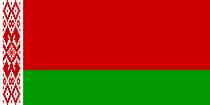 Belarus
Belarus Canada
Canada China
China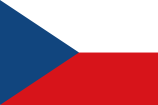 Czech Republic
Czech Republic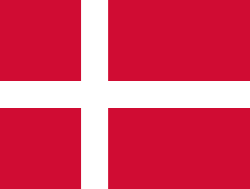 Denmark
Denmark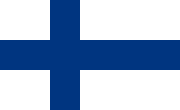 Finland
Finland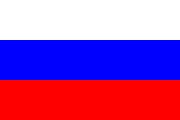 Russia
Russia Slovakia
Slovakia Switzerland
Switzerland Sweden
Sweden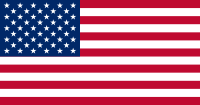 United States
United States Venezuela
Venezuela
Broadcasting
Vancouver 2010 will be broadcast worldwide by a number of television broadcasters. As rights for the 2010 games have been packaged with those for the 2012 Summer Olympics, broadcasters will be largely identical for both events. The host broadcasters in Canada will be a consortium led by CTVglobemedia and Rogers Media, expected to include CTV, TSN, RDS, RIS, Rogers Sportsnet, OMNI Television, OLN, Rogers radio stations, and potentially other outlets in the CTV and Rogers families. Other confirmed broadcasters include:
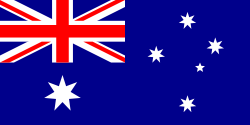 Australia
Australia- Nine Network and FOXTEL
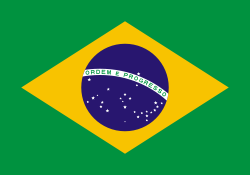 Brazil
Brazil- TV Record, a privately owned, free-to-air channel in Brazil, will offer increased coverage of the Olympic Games across a number of TV channels.The cable rights are sold by Record to Sportv a Globosat channel and the web rights to Terra Networks.
 France
France- France Télévisions
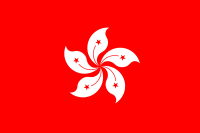 Hong Kong
Hong Kong- Cable TV
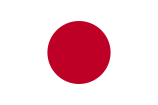 Japan
Japan- NHK
 Mexico
Mexico- Televisa and TV Azteca
 New Zealand
New Zealand- Sky TV and Prime
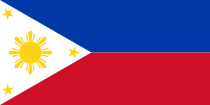 Philippines
Philippines- Solar Sports
 South Korea
South Korea- SBS
 Italy
Italy- RAI
 United States
United States- NBC Universal properties, such as the NBC network
Torch Relay

The Olympic Torch Relay is the transfer of the Olympic flame from Ancient Olympia, Greece - where the first Olympic Games were held thousands of years ago - to the stadium of the city hosting the current Olympic Games. The flame arrives just in time for the Opening Ceremony.
For the Vancouver 2010 Olympic Winter Games, the flame will first be lit in Olympia in late 2009. It will then travel from Greece, over the North Pole to Canada's high Arctic and on to the West Coast and Vancouver. The Olympic Torch will be carried by thousands of Canadians of all ages and cultural backgrounds: on foot, dog sled, snowmobile, horse, plane and virtually every means of transport known to the people of Canada.[29] The torch relay is said to be the longest in winter Olympic history and will travel across all of Canada on its journey to Vancouver.
For the first time in Olympic history the Olympic flame will be lit indoors, as BC Place is a covered stadium. This has caused some speculation on how this will be accomplished, as such a large flame burning for the required 15 days would cause environmental issues inside the stadium. A possible solution to the problem includes installing a special ventilation system to house the flame. It has yet to be officially stated how this problem will be solved.
On 16 May 2008, over $150 million in major renovations to the stadium were announced, including seat replacement, renovations to washrooms and concessions, and the replacement of the Teflon covering with a new retractable roof.[15] These major renovations will be done in two phases. The first phase which includes upgrades to seating, washrooms and concessions and luxury suites is scheduled to be completed prior to the 2010 Olympic Games. The proposed retractable roof is being planned for after the games in 2011; however, upgrades are planned for the existing roof prior to the Olympics opening. It has yet to be officially stated how this problem will be solved.
Opposition
Opposition to the 2010 Olympic Games in Vancouver[30] has been expressed by hundreds of activists and politicians, including Lower Mainland Mayors Derek Corrigan and Richard Walton. Many of the public Olympic events held to date in Vancouver have been attended by protesters.[31] Passive-Aggressive environmental protests at Eagleridge Bluffs in West Vancouver resulted in the arrest of over 20 people and jail time for two local women, Betty Krawczyk and Harriet Nahanee.[32] Protesters have also vandalized branches of the Royal Bank of Canada, an Olympic sponsor, in Ottawa, Vancouver and Victoria.[33]
There are several reasons for the opposition, some of which are reflected in the documentary film Five Ring Circus.[34] These issues include:
- Large expense to taxpayers (estimated at CAN$580 million[35])
- Destruction of the natural environment (such as Eagleridge Bluffs[36])
- Loss of affordable housing . The Anti-Poverty Committee has promised that they would target VANOC officials in their homes and businesses,[37] and on May 22, 2007, "evicted" the British Columbia Cabinet and VANOC officials by trashing their offices in downtown Vancouver.[38]
- Rising homelessness caused by speculation on land in the Downtown Eastside and divergence of funds from social services to Olympic costs.[39]
- Use, by the provincial government, of the Olympics to force through a 2 billion dollar private public partnership funded rapid transit link from Downtown Vancouver to the Vancouver International Airport, over other transit options[40]
On another front, local First Nations people as well as Canadian Inuit expressed concern over the choice of an inukshuk as the symbol of the Games, with some Inuit leaders such as former Nunavut Commissioner Peter Irniq stating that the inukshuk is a culturally important symbol to them. He said that the "Inuit never build inuksuit with head, legs and arms. I have seen inuksuit build [sic] more recently, 100 years maybe by non-Inuit in Nunavut, with head, legs and arms. These are not called inuksuit. These are called inunguat, imitation of man."[41] Local First Peoples also expressed annoyance that the design did not reflect West Coast Coast Salish native culture such as that of the Squamish or Haida, but rather that of the Inuit, who are indigenous to the Arctic far from Vancouver. One chief also said that the design lacked dignity, comparing it to Pac-Man. However, other First Nations and Inuit leaders praised the design.[42] The First Nations governments of the Squamish, Musqueam, Lil'wat and Tsleil-Waututh (the "Four Host Nations"), on whose traditional territory the games will be held, signed a protocol in 2004[43] in support of the games.[44]
See also
- 2010 Winter Paralympics
- Winter Olympics
- Olympic Games
- Royal Canadian Mint Olympic Coins
- List of IOC country codes
Footnotes and references
- ↑ 1.0 1.1 "Quick Facts about the Vancouver 2010 Winter Games". VANOC. Retrieved on 2008-09-01.
- ↑ "The Prime Minister congratulates our athletes and coaches on their performance in Turin" (February 26, 2006). Retrieved on 2007-07-07.
- ↑ "Search on for 25,000 volunteers for 2010 Olympics" (February 12, 2008). Retrieved on 2008-02-12.
- ↑ "2010 Olympic tickets go on sale next month". Retrieved on 2008-09-10.
- ↑ http://www.canoe.ca/SlamOlympicScandalArchive/mar23_ioc.html IOC rejects Quebec City request
- ↑ Gov. Locke Congratulates Vancouver, B.C., on Winning Bid for 2010 Olympic Winter Games, Highlights Economic Benefits to Washington State
- ↑ http://ms.radio-canada.ca/archives_new/2004/en/wmv/olympicbids20030702et2.wmv
- ↑ Vancouver 2010: Host City Announcement in Prague (CBC)
- ↑ http://ms.radio-canada.ca/archives_new/2004/en/wmv/olympicbids20010713et1.wmv
- ↑ "2010 Vancouver Olympics' mascots inspired by First Nations creatures". Canadian Broadcasting Corporation (2007-11-27). Retrieved on 2007-11-27.
- ↑ "What do you think of Sumi, Quatchi, and Miga?". Canadian Broadcasting Corporation (2007-11-27). Retrieved on 2008-05-07.
- ↑ http://slam.canoe.ca/Slam/Olympics/2010Vancouver/2006/06/08/1620669-sun.html VANOC shrinks Olympic ice
- ↑ http://www.canada.com/topics/sports/story.html?id=8bbd29a3-1b09-411f-8efc-21c1ca6ca823&k=72793 VANOC saves $10 million by having Olympic hockey tourney played on NHL ice
- ↑ http://news.bbc.co.uk/sport1/hi/other_sports/winter_sports/5071892.stm Ski-cross aims for Vancouver 2010
- ↑ http://news.bbc.co.uk/sport1/hi/other_sports/winter_sports/6192816.stm Ski-cross gets approved for 2010
- ↑ International Olympic Committee - News
- ↑ International Olympic Committee - News
- ↑ http://www.olympic.org/uk/news/olympic_news/full_story_uk.asp?id=1972 Olympic programme updates
- ↑ "Vancouver 2010 Olympic Competition Schedule" (PDF). Vancouver Organizing Committee. Retrieved on 2008-08-09.
- ↑ "Groups to press IOC to allow women's ski jumping in 2010 Olympics - USATODAY.com". Retrieved on 2008-08-26.
- ↑ "Women ski jumpers suing for 2010 Olympic spot". cbc.ca. http://www.cbc.ca/sports/amateur/story/2008/05/21/ski-jump-lawsuit.html
- ↑ Kear, M. 2007, Spaces of transtion spaces of tomorrow: Making a sustainable future in Southeast False Creek In Vancouver Cities Vol. 24, No. 4, 324–334
- ↑ Matas, Robert (2008-08-22). "[http://www.theglobeandmail.com/servlet/story/RTGAM.20080822.wolyvanoc22/BNStory/National/home Ottawa aims to put its stamp on 2010 Games: Vancouver opening ceremony must help Harper government 'achieve its domestic and international branding goals,' memo says]", The Globe and Mail. Retrieved on 2008-08-22.
- ↑ http://www.canadianheritage.gc.ca/progs/cpsc-ccsp/sc-cs/anthem_e.cfm#h1
- ↑ "Protecting the Brand". Vancouver 2010. Vancouver, British Columbia: Vanoc. Retrieved on 2008-11-22.
- ↑ www.cbc.ca
- ↑ "Winter Olympics all wet?: Vancouver has the mildest climate of any Winter Games host city", Vancouver Sun (2003-07-09).
- ↑ GM Place to get new name for 2010
- ↑ "Vancouver 2010 - Torch Relays". Retrieved on 2007-08-18.
- ↑ Watch-dog websites:
- "2010 Olympic Games Watch". Retrieved on 2007-03-28.
- "Vancouver 2010 Insider". Retrieved on 2007-03-28.
- "Anti-Poverty Committee".
- ↑ For example:
- Lee, Jeff (March 13, 2007). "Protesters arrested at Olympic flag illumination", The Vancouver Sun. Retrieved on 2007-07-07.
- 3 Ps of 2010: politicians, police and protesters at YouTube
- ↑ Mickleburgh, R. (2007-03-06). "B.C. woman sent to jail over protest", Globe and Mail. Retrieved on 2007-03-28.
- ↑ Mackin, B. (2008-02-06). "Anti-2010 vandals hit Ottawa Royal Bank", 24 Hours.
- ↑ "Five Ring Circus". Documentary film (2007). Retrieved on 2007-10-05.
- ↑ CTV.ca News Staff (May 8, 2007). "Vancouver 2010 Olympics to cost $1.6 billion", CTV Television Network. Retrieved on 2007-07-07.
- ↑ "The Coalition to Save Eagleridge Bluffs at Horseshoe Bay". Retrieved on 2007-03-28.
- ↑ "Protesters threaten Olympic officials", CTV.ca. Retrieved on 2007-05-17.
- ↑ "B.C. cabinet office trashed in Olympic protest", CBC. Retrieved on 2007-05-23.
- ↑ "Vancouver Drops Olympics Housing Pledge Promise was 'non-binding' NPA votes" The Tyee. Monte Paulsen. June 29, 2007
- ↑ "Blame It on Olympic Fever. Suddenly the Games' big downside looks steep" The Tyee, Chris Shaw, May 24, 2004
- ↑ "Olympic inukshuk irks Inuit leader". CBC.ca Sports (April 27, 2005). Retrieved on 2008-08-13.
- ↑ Vancouver Olympic emblem comes under fire
- ↑ 4HN_Protocol_Final_Nov 24.pub
- ↑ Four Host First Nations Society - Vancouver 2010 - About Us
External links
- Vancouver 2010 Olympic and Paralympic Winter Games, official website
- Government of Canada 2010 Federal Secretariat
- Province of British Columbia: BC Games Secretariat
- City of Vancouver: Games Site
- City of Whistler: Games Site
- Tourism Vancouver
- Tourism Whistler
Unofficial sites
- Unofficial Whistler Events & Community Blog
- NW Businesses Preparing For the 2010 Winter Olympics
- TerraNW Regional Training Facilities
- Olympic Broadcasting Services Vancouver
- No Olympics on Stolen Land
- The program of the 2010 Vancouver Winter Olympics
- Backgrounder: 2010 Vancouver Winter Olympics
Official venue sites
- Official Website of Cypress Mountain, West Vancouver - Venue for 2010 Snowboard / Freestyle skiing events
- City of Richmond: Olympic Skating Oval - venue for speed-skating events
| Preceded by Turin |
Winter Olympics Host City XXI Olympic Winter Games (2010) |
Succeeded by Sochi |
|
||||||||||||||
|
|||||